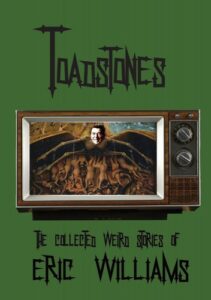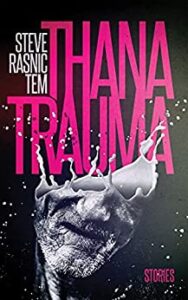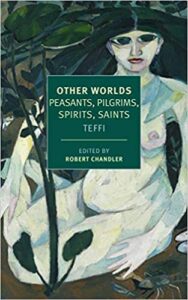Toadstones by Eric Williams
Malarkey Books, 2022
ISBN: 9781088017302
Available: paperback, Kindle ( Bookshop.org )
If you thought you’d read all the possible plotlines available for short stories, think again. Eric Williams’s Toadstones obliterates that notion. The book relies wholly on originality and a deft touch with the writing, no gore or sex needed. For horror fans, this is a can’t miss.
It’s only the beginning of the book that runs flat; of the first three stories, two are easily forgettable. After that, in terms of imagination, all the stories are loaded with enough horsepower to redline a Peterbilt freight truck. You can catch traces of the author’s influences (a touch of “The Mummy” and “Invasion of the Body Snatchers” here, a trace of Lovecraft there) but he’s managed to create something entirely new with them. The closest to a theme for this book would be ‘ordinary dudes running into REALLY weird things.’ Some examples:
1. A man on a nature hike in Utah happens upon one of the Greek gods, and shares beer and conversation with him.
2. A showing of a crime noir film turns all too real for some of the theatre viewers.
3. A corrupt cop robs corpses of their limbs to sell for voodoo charms.
If that isn’t enough, there are also two bus-obsessed students tracking a phantom bus on an abandoned route, an oil rig crew drilling a seemingly pointless hole for an eccentric billionaire… the list goes on. All these stories are very creative, and highly entertaining. A special mention is needed for “Doomstown”, the best story in the book. It involves two crazy grad students on a quest to locate one of the mock-up towns left over from the days when the military tested high powered bang-bangs in the Nevada desert. This story has the highest scare factor of all of them: it’s off the charts. If you thought mannequins were even remotely creepy, read this story. You’ll never walk past a department store window again. “Doomtown'” should win every award available for best horror short story this year, it’s that good.
All the stories are well written; they flow fast and smooth like the Jack Daniels at a Kennedy family party on Cape Cod. There’s a nice touch of humor thrown in on occasion, and the characters are well sketched and feel authentic; there are no cardboard cutouts anywhere. The author does have a mild touch of Dickens-ism (aka using too many overblown words) on occasion, but that’s easily overlooked, as it only shows up a few times.
The bottom line? Just read it. One of the best of 2022 so far. Highly recommended.
Reviewed by Murray Samuelson.







Follow Us!